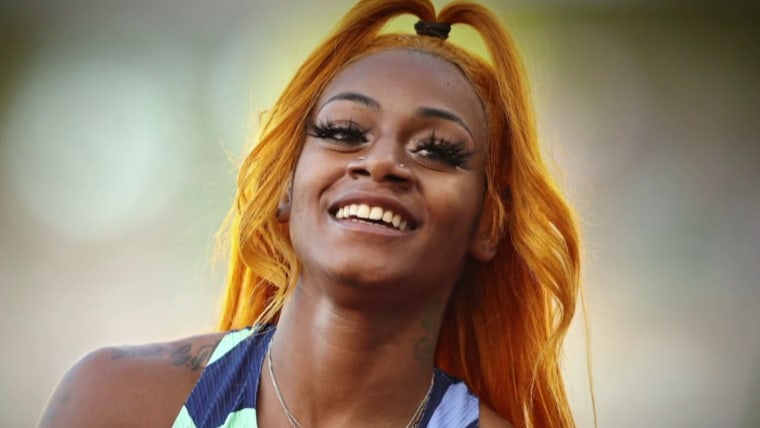US sprinter Sha’Carri Richardson, who missed the Tokyo Olympics after testing positive for marijuana, is calling out the decision to allow Russian figure skater Kamila Valieva to continue competing in the Beijing Games despite testing positive for a banned substance.
“Can we get a solid answer on the difference of your situation and mines?” Richardson tweeted Monday. “My mother died and I can’t run and was also favored to place top 3.”
“The only difference I see is I’m a black young lady,” she said.
Valieva, 15, returned to the ice Tuesday to compete in the individuals event, in which she’s favored to win gold, one day after the Court of Arbitration for Sport (CAS) ruled she can continue to compete at the Beijing Olympics, despite testing positive late last year for trimetazidine, a heart medication that is banned for athletes.
Sadiya Khan, a cardiologist at Northwestern Medicine, said the drug was originally developed to increase the efficiency of the heart and allow better blood flow to the organ so that patients with heart disease can get relief from symptoms.
“If it’s being used in someone who’s healthy and has no blockages, it’s theoretically possible that it may help them exercise for longer or more efficiently, which specifically in an athlete’s case, may give them a false advantage,” she said.
Richardson appeared in Tokyo Olympics-bound last summer but was suspended for 30 days starting in late June after testing positive for THC, the chemical in cannabis, essentially losing her shot to compete.
She said she took the drug to help cope after learning of the death of her biological mother.
THC was classified in 2021 as a substance of abuse under the World Anti-Doping Agency’s guidelines. While its high relaxes people, it is not known for increasing the athletic prowess of those who consume it.
“THC definitely is not a performance enhance,” Richardson tweeted Monday, pointing out a difference between her case and Valieva’s.
She accepted the suspension, saying on NBC’s “TODAY” show at the time, “I want to take responsibility for my actions.”
Richardson also pointed to the discrepancies in the drug testing results in her case and Valieva’s.
Valieva tests positive Dec. 25, but those results only emerged last week, after she helped lead her Russian teammates to gold in the figure skating team event in Beijing.
“Failed in December and the world just now know however my resulted was posted within a week and my name & talent was slaughtered to the people,” Richardson tweeted.
“It’s all in the skin,” she said in another tweet.
CAS said Valieva would be allowed to continue competing in Beijing in part because she is a minor and is a “protected person” subject to different rules than adults. It also cited the delay in reporting the test result and the risk of causing Valieva “irreparable harm” by preventing her from competing.
However, the International Olympic Committee (IOC) says it will hold off on medial ceremonies involving Valieva until the doping allegation is resolved.
The United States Olympic and Paralympic Committee condemned the CAS decision.
“Athletes have the right to know they are competing on a level playing field. Unfortunately, today that right is being denied,” committee CEO Sarah Hirshland said in a statement. “This appears to be another chapter in the systemic and pervasive disregard for clean sport by Russia.”


